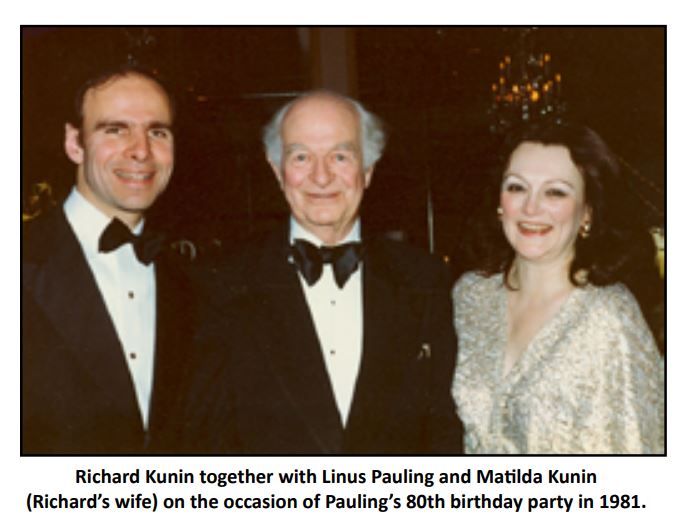
Richard A. Kunin, MD (1932-2021) earned his medical degree at University of Minnesota in 1955. His thesis, completed in 1953, Losing Weight on a High Fat Diet, was more than 50 years ahead of its time. Richard interned at Kings County Hospital in Brooklyn, New York, and completed three years of specialty training in psychiatry at New York Hospital. He served as a captain in the US Army for two years of active duty in Korea, followed by two years as staff psychiatrist at Valley Forge Hospital in Pennsylvania. After an additional year on staff at Minneapolis Veterans Hospital, he was board-certified in both psychiatry and neurology. From 1962 to 1963, Richard completed an NIH post-doctoral fellowship in neurology at Stanford University. There his published research, EEG Studies in Animal Hypnosis, was the first to report on hippocampal theta effects. Subsequently, he taught PhD-level practicum seminars at the Stanford Department of Psychiatry.
The next ten years in psychiatry focused on behavioral therapy and patient hypnosis, conditioning an Inner Smile that enables patients to face life and health challenges. This time also led to new insight, that situational cues elicit genetically programmed instincts and moods. Thus evolved his theory of Operational Mind, a natural strategy of intelligent adaptation, which proved exciting and clinically useful.
Major scientific breakthroughs of the 1960s inspired Richard to participate in now historic controversies on the role of diet and nutrients in medicine. He cofounded the California Orthomolecular Medical Society, served as the inaugural president of the International Society of Orthomolecular Medicine, and was a member of the editorial board of the Journal of Orthomolecular Medicine. He authored two bestsellers for McGraw-Hill, MegaNutrition in 1980 and MegaNutrition for Women in 1983. In 1994 he founded the Society for Orthomolecular Health Medicine and served as its president. His last appointment was as honorary board member to The Future of Medicine Foundation. Richard was research director and formulator for Ola Loa Health Products from 1997 to 2020.
A brilliant career in medicine, in his own words:
Orthomolecular advances were initially perceived as fads in orthodox thinking, but over the past 50 years have emerged as correct and valuable. My practice involved documenting each patient’s molecular needs with laboratory testing, providing a nutritional prescription and a partnership for informed self care. Investigations have included: • Mineral analysis and hair biopsy in the ‘60s • Megadose niacinamide in schizophrenia, 1968 • Hypoglycemia and antioxidants in the early ‘70s • Amino acids in the ‘70s • Identifying heavy metal poisoning using hair analysis, 1972 • Manganese in the treatment of tardive dyskinesia, 1974 • Aspirin for niacin flush response, 1975 • Prostaglandin theory of schizophrenia, 1975 • Orthocarbohydrate diet, 1976 • Omega-3 essential fatty acids in the ’80s • Iron overload, 1985 • Inflammation and oxidant stress, 1990 • Tryptophan and the IDO switch, 1992 • The autism epidemic, 1994 • Methylation and DNA testing from 1998 onward • The role of homocysteine and methylation in autism and other health disorders with detailed review of cobalamin, folate, and betaine (TMG), 1999
Orthomolecular Health Medicine is still in its infancy. We need to press on, learn more, and inspire others. What an exciting and fulfilling time to be a part of medical history—and to enjoy advances undreamed of at the outset of my medical career 65 years ago!
Downloadable copies of journal articles and professional papers by Dr. Kunin are available at www.olaloa.com/resources.






